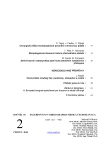Surgical treatment of frontobasal injury with CSF leak-our experience
Authors:
Ondřej Teplý; Jiří Fiedler; Vladimír Přibáň
Authors‘ workplace:
Dept. Of Neurosurgery, Fakulty of Medicíně, Masaryk University
; Department of Neurosurgery, Hospital České Budějovice, a. s.
; Neurochirurgická klinika LF MU a FN Brno
; Neurochirurgické oddělení Nemocnice České Budějovice, a. s.
Published in:
Úraz chir. 18., 2010, č.2
Overview
Aim:
Evaluation of influence of anterior skull base surgery timinig on results and complications rate from retrospective analysis in our institution.
Material and Methods:
There were 32 patients operated on for anterior skull base injury in period 2006-2009 in our department. Mostly men, average age was 40.7 y. In seven patients was surgery postponed from various reasons and so they were excluded from the study. Anterior skull base fracture was combined with intracranial injury in most patients. Diagnostics con-sisted in case history, clinical and biochemical examination, plain radiography, CT and someti-mes radionuclide cisternography.
Results:
25 patients were operated on early for anterior skull base injury. 10 patients had no combined intracranial injury. Time from injury to surgery was 5, 6 days. 15 patients had combined intracranial injury (intracerebral, subdural and or epidural hematoma). Interval between injury and surgery was 12, 6 days. Water-tight closure with stop of CSF (Cerebrospinal Fluid) leak was succesful in 90 % patients after acute surgery with the use of bifrontal craniotomy. Suplementary procedures: endonasal endoscopy (2x), revision of insufficient duroplasty (1x) led to complete efficacy. GOS corelated with initial GCS (and presence of intracranial injury). Deferral of surgery was associated with higher rate of inflammatory complications.
Conclusion:
On the basis of our retrospective study and in conformity with literature we recommend acute surgery in anterior skull base injury with CSF leak. The exclusion is the patient in critical status (polytrauma). Postponed revision is associated with unacceptable high rate of inflammatory complications.
Key Words:
Cerebrospinal Fluid Rhinorrhea, Skull Fractures, Central Nervous System Bacterial Infections.
Sources
1. BRODIE, HA. Prophylactic Antibiotics for posttrau-matic Cerebrospinal Fluid Fistulae .A meta analysis. Arch Otolaryngol Head Neck Surg. 1997, 123, 749–752.
2. ELJAMEL, M.S, FOY, P.M. Post-traumatic CSF fistulae, the case for surgical repair. Br J Neurosurg. 1990, 4, 479–483.
3. JENNET, B, BOND, M. Assessment of outcome after severe brain damage: a. practical scale. Lancet. 1975, 1, 480–484.
4. KALITA, O, KALA, M, VAVERKA, M. et al. Načasování operačního řešení frontobazálních poraně-ní. Čes. a slov. Neurol. Neurochir. 2005, 68/101, 102–107.
5. KALITA, O, VAVERKA, M, HOUDEK, M. Fronto-bazální poranění s recidivou likvorové píštěle po 25 letech – kazuistika. Úraz chir. 2005, 13, 61–65.
6. MRAČEK, Z. Kraniocerebrální poranění. Praha: Avicenum, 1988. 304 s.
7. ROCCHI, G., CAROLI, E, BELLI, E. et al. Severe craniofacial fractures with frontobasal involvement and cerebrospinal fluid fistula: indications for surgical repair. Surg Neurol. 2005, 63, 559–563.
8. SCHOLSEM, M., SCHOLTES, F., COLLIGNON, F. et al. Surgical Managment of Anterior Cranial Base Fractures with Cerebrospinal Fluid Fistulae: A Single-institution Experience. Neurosurgery. 2008, 62, 463–469.
9. SMRČKA, M a kol. Poranění mozku. Praha: Grada, 2001. 272 s.
10. ZLAB, MK, MOORE, GF, DALY, DT, et al. Cere-brospinal Fluid Rhinorrhea: A Review of the Literature. Ear Nose Throat J. 1992, 71, 314–317.
Labels
Surgery Traumatology Trauma surgeryArticle was published in
Trauma Surgery

2010 Issue 2
- Possibilities of Using Metamizole in the Treatment of Acute Primary Headaches
- Metamizole vs. Tramadol in Postoperative Analgesia
- Spasmolytic Effect of Metamizole
- Metamizole at a Glance and in Practice – Effective Non-Opioid Analgesic for All Ages
- Safety and Tolerance of Metamizole in Postoperative Analgesia in Children
Most read in this issue
- Mechanism of injury of transitional ankle fractures
- Surgical treatment of frontobasal injury with CSF leak-our experience
- Semiinvasive lateral subtalar aproach for osteosynthesis of calcaneal fractures
